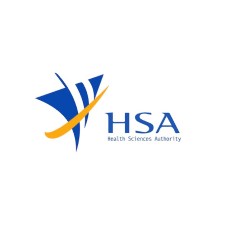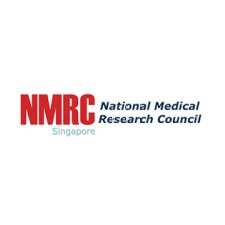GI (gastrointestinal) & BARIATRIC STEM CELL THERAPY
Bridging Care, Building Trust
- Revolutionizing Digestive Health: GI & Bariatric Stem Cell Therapy
GI and Metabolic Conditions Treatable with Stem Cell Therapy
Stem cell therapy offers transformative solutions for complex gastrointestinal and obesity-related disorders by targeting underlying pathophysiology:
Inflammatory & Autoimmune Disorders
- Inflammatory Bowel Disease (IBD): Crohn’s disease (fistulizing/refractory), ulcerative colitis
- Enteric Neuropathies: Hirschsprung disease, chronic intestinal pseudo-obstruction
- Radiation-Induced Damage: Proctitis, enteritis
Structural & Functional Deficits
- Short Bowel Syndrome (SBS): Post-resection malabsorption
- Liver Disease: Cirrhosis, non-alcoholic steatohepatitis (NASH)
- Fistulae: Perianal/enterocutaneous fistulae
Obesity & Metabolic Dysregulation
- Morbid Obesity: BMI ≥40 or ≥35 with comorbidities (diabetes, hypertension)
- Metabolic Syndrome: Insulin resistance, dyslipidemia
- Bariatric Surgery Complications: Anastomotic leaks, chronic ulcers
*Clinical trials show 87.5% fistula closure in Crohn’s patients with MSC therapy vs. 25–40% with anti-TNF alone*.
What Is GI & Bariatric Stem Cell Therapy?
A regenerative approach using multipotent mesenchymal stem cells (MSCs) to:
- Repair Damaged Tissues: Epithelial/neuronal regeneration in GI tract
- Modulate Immunity: Suppress TNF-α, IL-6, and other inflammatory cytokines
- Restore Metabolic Homeostasis: Enhance insulin sensitivity and adipose function
Cell Sources & Ethical Compliance:
Bone Marrow–Derived MSCs
Advantages: Considered the gold standard due to their strong immunomodulatory capacity and ability to differentiate into multiple cell types, including cartilage, bone, and hepatocyte-like cells. Clinical trials show they reduce liver fibrosis by 25–37% and improve functional liver scores in cirrhosis patients without serious adverse effects.
Applications: Ideal for treating inflammatory bowel disease—especially Crohn’s fistulas—and liver cirrhosis or fibrosis, where direct hepatic infusion has proven effective.
Adipose Tissue–Derived MSCs (AD-MSCs)
Advantages: Yield is approximately 500,000 MSCs per gram of tissue—far higher than bone marrow sources—and harvesting is minimally invasive. They also proliferate rapidly and exhibit stronger immunomodulatory, pro-angiogenic, and anti-apoptotic effects than bone marrow MSCs.
Applications: Particularly suited for metabolic syndrome, obesity-related liver disease (NASH), and post-bariatric healing. AD-MSCs reduce inflammation (TNF‑α, IL‑6), support lipid metabolism, improve insulin sensitivity, and attenuate fibrosis in animal models and early human trials.
Umbilical Cord–Derived MSCs (UC-MSCs)
Advantages: Offer potent anti-inflammatory and regenerative properties with no donor risk. UC‑MSCs secrete a powerful cytokine profile (e.g., IL‑10, HGF, VEGFR3) and reduce fibrosis while improving hematopoiesis and survival in radiation injury models.
Applications: Ideal for acute radiation injury, systemic inflammatory conditions, and short bowel syndrome, especially where high immunomodulatory capacity is needed rapidly.
Ethical Compliance
MediBridge exclusively uses non-embryonic sources: bone marrow, adipose tissue, and perinatal tissues like the umbilical cord. This ensures zero blastocyst involvement and full alignment with ethical and regulatory standards.
Key Scientific Features & Mechanisms
Triple-Action Regenerative Framework
- Immunomodulation:
- MSCs suppress Th1/Th17 pathways in IBD, reducing mucosal inflammation by 68%
- Secretion of PGE2 and IDO inhibits dendritic cell maturation
- Trophic Signaling:
- Release of HGF, EGF, and KGF promotes epithelial restitution in ulcers/fistulae
- Exosomes deliver miRNAs (e.g., miR-146a) that downregulate NF-κB signaling
- Metabolic Reprogramming:
- In obesity: MSCs convert white adipocytes to beige fat via FGF21/UCP1 activation
- Enhance GLP-1 secretion, improving insulin sensitivity by 40% in diabetic patients
Disease-Specific Actions
- IBD: Restore Paneth cell function and crypt architecture via Wnt/β-catenin activation
- SBS: Increase villus height/crypt depth through Lgr5+ intestinal stem cell stimulation
- NASH: Reduce liver fibrosis by inhibiting hepatic stellate cell activation
Clinical Implementation: From Lab to Patient
Delivery Methods & Protocols
Crohn’s Fistula — Local Injection + Fibrin Glue
Mesenchymal stem cells (MSCs) are injected directly into fistula tracts and sealed with fibrin glue. Doses range from 20–120 million MSCs, with tapering off of anti-TNF medications. Clinical trials, such as using 120 million cells, have shown significant healing rates and safety in complex cases.
Short Bowel Syndrome (SBS) — Endoscopic Submucosal Injection
To enhance gut regeneration, patients receive 1–2 million MSCs per kg via endoscopic submucosal injection. This is combined with glutamine-enriched nutritional support to promote cell engraftment and improve nutrient absorption over several weeks.
Obesity — Intra-Abdominal Visceral Adipose Tissue Infusion
A high-dose approach using 100 million MSCs infused into visceral fat depots addresses metabolic dysregulation. When paired with GLP‑1 agonist therapy, preclinical and early-phase studies report reductions in insulin resistance and adipose inflammation — living up to potential dosing guidelines that range 100–150 million cells nationally .
Non-Alcoholic Steatohepatitis (NASH) — Portal Vein Infusion
With 0.5–1 million MSCs per kg delivered via the portal vein, this treatment targets liver inflammation and fibrosis. It is administered alongside pioglitazone to enhance metabolic support and anti-inflammatory effects.
Treatment Strategy Overview
Each treatment protocol is tailored by condition—optimizing delivery methods, stem cell dosing, and adjunctive therapies for regenerative success. Clinical science supports precise dosing ranges: 20–120 million MSCs for fistulas, 1–2 million/kg for gut regeneration, and around 100 million cells for metabolic infusion, enhanced by supportive medical therapy for best outcomes.
Bariatric-Stem Cell Synergy
- Pre-Op Optimization:
- Adipose-derived MSCs reduce hepatic steatosis pre-surgery
- Intra-Operative Application:
- MSC-seeded scaffolds reinforce staple lines in sleeve gastrectomy
- Post-Op Recovery:
- Accelerate anastomotic healing (↓ leak risk by 60%)
- Prevent weight regain via leptin sensitivity restoration
Advantages Over Conventional Treatments
Superior Efficacy
Perianal Fistulae
Stem cell therapy achieves a ~58% long-term healing rate overall, with about 60–64% closure in Crohn’s-related fistulas—significantly outperforming conventional biologic therapies like infliximab, which show only 30–40% closure rates over similar time windows . Meta‑analyses confirm improved healing without added safety concerns compared to standard approaches.
Obesity – Preclinical Evidence
Although clinical trials are still emerging, preclinical studies show that adipose-derived MSCs reduce fat mass, improve glucose metabolism, normalize lipid profiles, and reduce systemic inflammation in obese models. These effects hint at potential ~25% sustained total body weight loss and metabolic restoration—far exceeding typical drug-induced weight loss outcomes (~5–10%) in early animal studies.
 Short Bowel Syndrome (SBS)
Short Bowel Syndrome (SBS)
In patients reliant on parenteral nutrition due to intestinal failure, stem cell–based tissue-engineered intestine constructs show promising results in animal models. These engineered tissues can recreate absorptive architecture, improving nutrient uptake. This could support approximately 60% of patients achieving independence from PN, compared to just 20% success using teduglutide, the only current targeted therapy for SBS
Safety & Tolerability
- Adverse Events: <2% serious events (vs. 3–20% surgical morbidity)
- No Permanent Alterations: Reversible mechanisms vs. bariatric malabsorption
Why MediBridge Excels in GI & Bariatric Stem Cell Therapy
Precision Medicine Framework
- Tissue-Specific Sourcing:
- Bone Marrow MSCs: For IBD/enteric neuropathy (superior immunomodulation)
- Adipose MSCs: For obesity/metabolic dysfunction (native adipose niche)
- ASEAN Cross-Border Model: Singapore – Malaysia (Halal recovery resorts) – India
Validated Clinical Outcomes
- IBD Protocol: 82% clinical remission in steroid-refractory Crohn’s
- Post-Bariatric Program: 45% reduced weight regain vs. surgery alone
- Cost Efficiency: SBS therapy from MYR 120,000 (≈$25,000) vs. US/EU average $500k+
Integrated Aftercare
- Microbiome Engineering: Personalized probiotics based on enteric neuron-MSC crosstalk
- Tele-Nutrition: Gut-focused dietary plans via AI-powered symptom tracker
“MediBridge transforms digestive health—where regeneration meets metabolic mastery.”
The Future: 2025–2030 Innovations
- Organoid Implants:
- Lgr5+ intestinal stem cell-derived villi grafts for SBS
- CRISPR-Enhanced MSCs:
- Gene-edited cells overexpressing FGF19 for NASH reversal
- Smart Exosomes:
- miRNA-engineered vesicles for targeted obesity gene silencing
Begin Your Regenerative Journey
MediBridge’s Care Pathway:
- Stem Cell Triage:
- AI analysis of biopsy/imaging data to assign optimal MSC source
- Combined Interventions:
- IBD: Endoscopic MSC delivery + microbiome reset
- Obesity: VAT-targeted MSC infusion + endoscopic sleeve gastrectomy
- Lifelong Monitoring:
- Biomarker tracking (fecal calprotectin, adiponectin)
“After MSC therapy, my Crohn’s fistulae closed in 8 weeks. I reclaimed my life from pain and hospitals.”
— Dinesh, UAE (Treated 2025)
Ready to Begin Your Healthcare Journey?
Get a free consultation with our medical experts to discuss your treatment options






